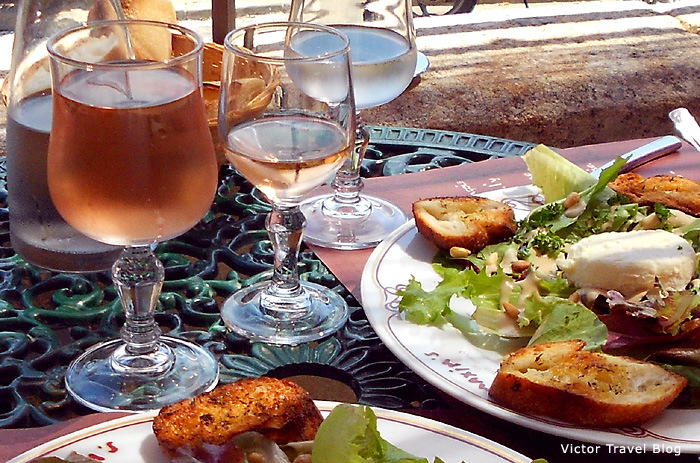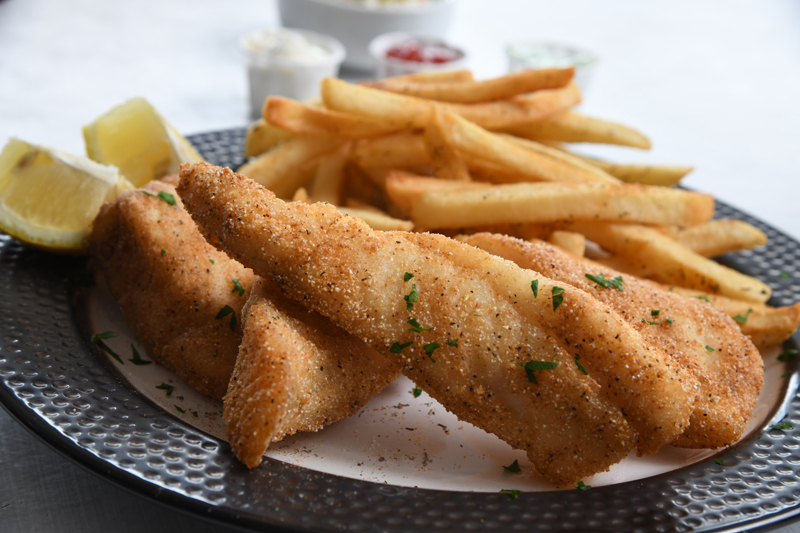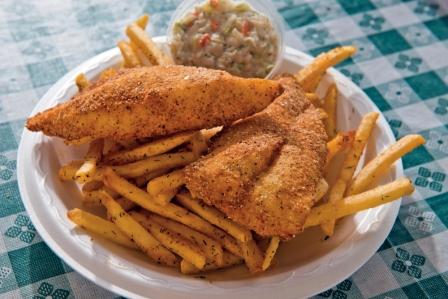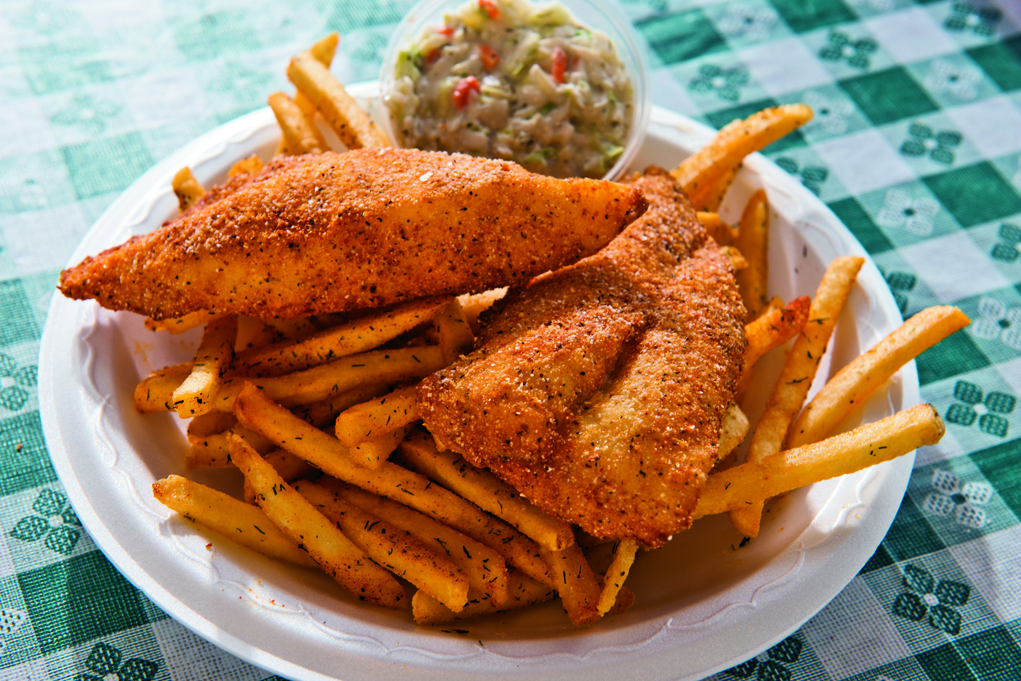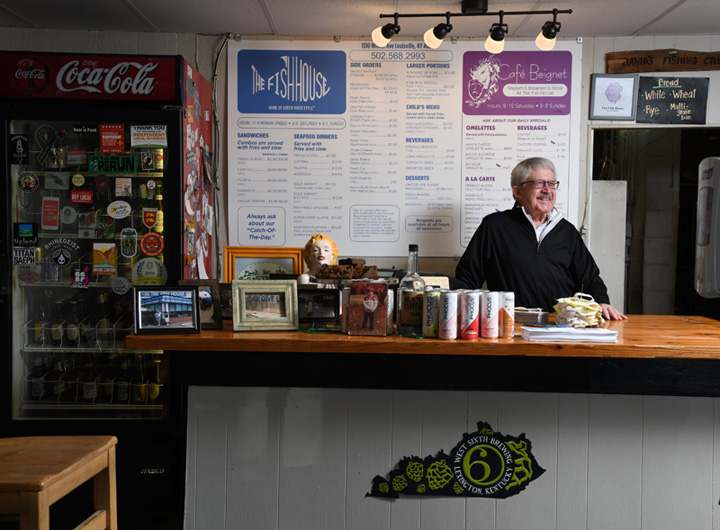
The Fish House | 1310 Winter Ave. | 502.568.2993
(This story originally appeared in the Summer 2021 print issue.)
Moving to the Head of the Line
Twenty-two centuries ago, when the Greek mathematician Archimedes was figuring out how to calculate the surface area and volume of cylinders and spheres, he began by postulating that a straight line is the shortest distance between two points.
I postulate that Archimedes never visited the Fish House/Café Beignet on a Friday night during Lent (or, in fact, many nights throughout the year), when the restaurant is packed beyond its proverbial gills. Because on those nights, the Fish House queue, no matter how straight, is the longest distance between a hungry appetite and fried perfection.
The Fish House/Café Beignet line is arguably the cheeriest line in the city, a fact that may confound first-timers accustomed to the sighs and frowns that are typical in longish queues. This line is invariably patient, even on the occasions when it wends its way onto the patio, as it did during much of the pandemic, after the restaurant marked out six-foot
spacing intervals. Most times, the line coalesces into a happy ad hoc community of strangers united in a common cause.
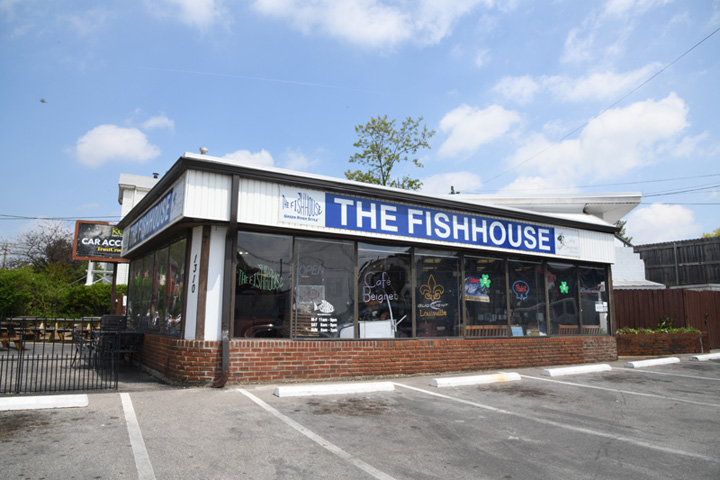
If you look to the head of the line, about 99% of the time you will see either David Hilsenrad (who founded Fish House in 1993) or his son Adam, (who founded Café Beignet in 2001).
David and Adam greet a high percentage of customers by name — an indication they have a lot of repeat customers. If you’re waiting to collect a to-go order as you linger near the register, you’ll overhear a congenial stream of conversation that touches on pretty much everything: Louisville gossip, horse racing, developments in the restaurant scene, family anecdotes, and music (David Hilsenrad played trumpet in the 52nd United States Army Band).
While you’re waiting, take a look around at the award plaques and the bric-a-brac on the walls and counters. Ask David or Adam about the fish shack artifacts, the trophy fish on the wall, the Betty Boop doll, or the Marilyn Monroe photo gallery off to the side — and what you’ll learn is that nearly all of it (except the award plaques) is crowd-sourced by customers who bring these items in to stake their claim to this domain.
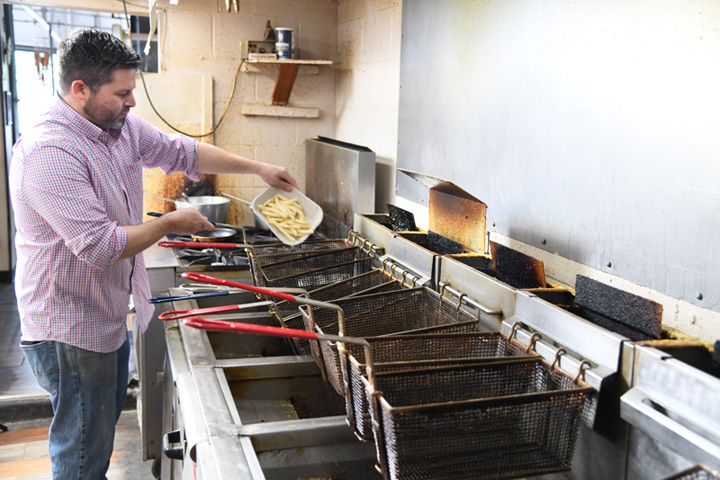
For David and Adam, these personal interactions are as central to the restaurant’s values as is serving up fresh, perfectly prepared fried fish or a bowl of clam chowder with the same depth of flavor and satisfying mouthfeel you’d experience at a fish shack on the coast of Maine.
After thirty years of splitting his time between cutting fish in the kitchen and taking orders, David’s relationships with customers run deep. “I love my customers,” he said in an interview. “It’s such an eclectic, stimulating group. Our customers come from every walk of life, working people and professionals, politicians, teachers and nurses. And we get to know each other. I’ll see a couple come in for 25 years; I’ll get to know their kids, and their kids’ kids… and then one day the wife comes in without her husband… and I feel that loss. It really is a kind of love.”
The Fish House, unlike many, if not most, casual, counter service restaurants, doesn’t use numbered tickets or flags as part of its service protocol. Adam said, “I don’t want our customers to be numbers. I want them to feel comfortable and welcome, so I want to know them by name. I want to recognize them as persons. I don’t want them to be transactions or dollar amounts. Dad and I are both people persons. We enjoy being around people and socializing, no matter how busy it is — and Dad just loves being at that register with customers. It’s his wheelhouse.”
The Hilsenrad wheelhouse has deep familial roots in Louisville’s culinary history. David’s father, Philip Hilsenrad, relocated from New York City to Louisville in the middle of the last century, and, among other things, opened a Ranch House Restaurant in Southern Indiana where he reputedly introduced the first carhop service in that state.
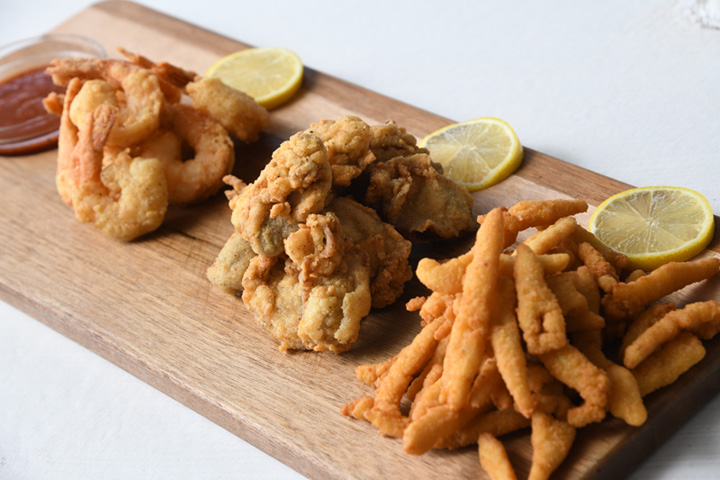
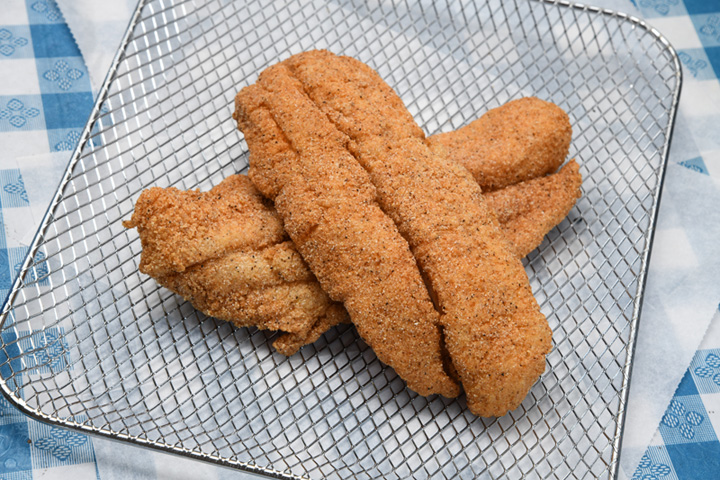
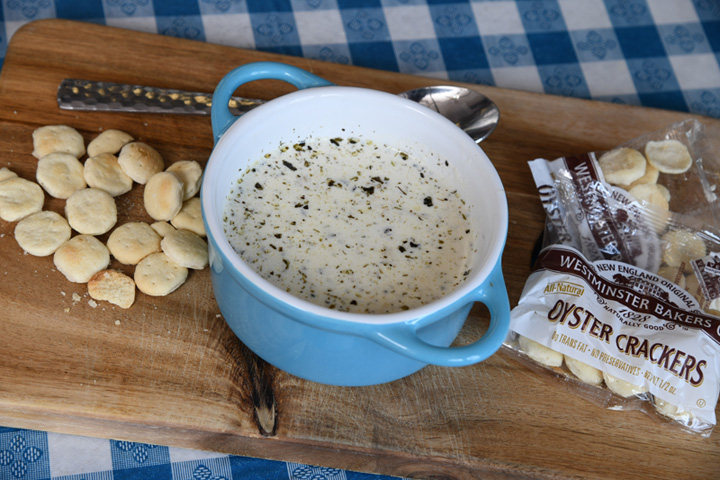
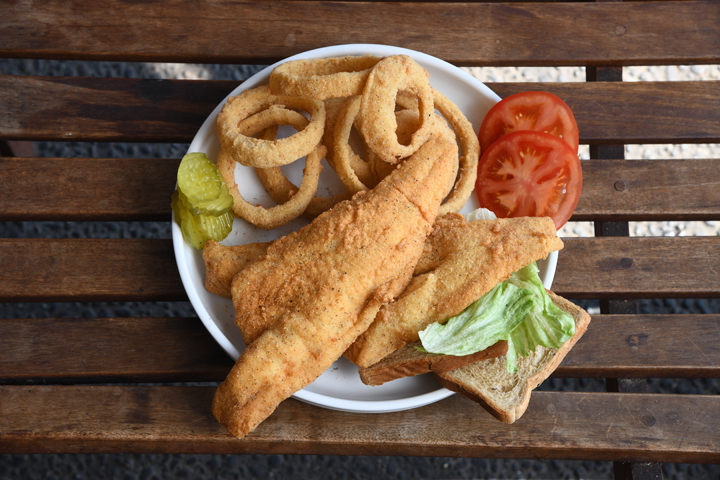
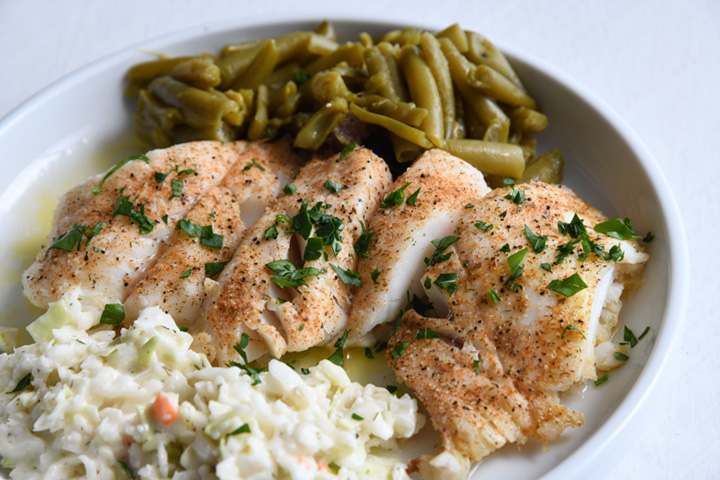
David spent a few years living in the West before returning to Louisville in the ‘70s and becoming part owner of three Burger Queen restaurants (a regional chain, much missed by those of us who remember it). In the 1980s he started an upscale restaurant called David’s Seafood Bar &Grille in the Douglass Loop area (a Courier Journal reviewer called the grilled swordfish Dijon “eyerolling good”).
That Burger Queen experience, Dave said, gave him a firm grounding in the elements of restaurant management — food costs, labor costs, training, and quality control. During his stint in fine dining, David developed a network of mentors and friends that included some of Louisville’s most storied restaurateurs, including people like Fred Kunz and members of the Masterson family.
But eventually, David started feeling stifled by the formality of fine dining — he’s a freespirited populist at heart, and thrives in a casual, stimulating environment. And because he had a deep grounding in both fast food and seafood, he set out to map a new course. And in 1993, he did just that. “I put two and two together and decided to do this,” he said, referring to the Fish House. “It’s been nearly thirty years and I still love it every day. I love it.”
An unlikely combo: Beignets and fish
Adam, likewise, has a rich culinary background that combines both rich work history and formal training. “My father always told me that I should work in successful businesses, and in noncorporate businesses.” At 15 or 16 he started out working the counter at a Louisville outpost of the Great Harvest Bread Company, then moved to the kitchen and started baking cookies, muffins, scones, and specialty breads. At 20, when the bakery closed, he took a position at Paul’s Fruit Market, where he worked the deli counter and then, as Paul’s ramped up its housemade food service, moved to the commissary, learning to prep and cook dishes like chicken tetrazzini, meatloaf, holiday menus, and the like.
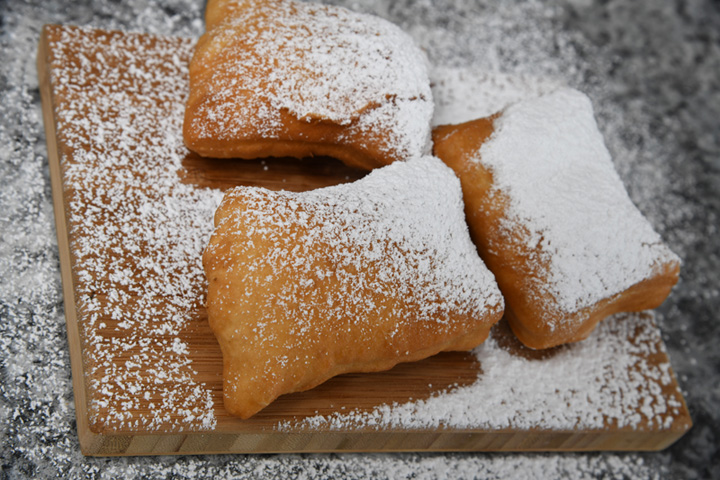
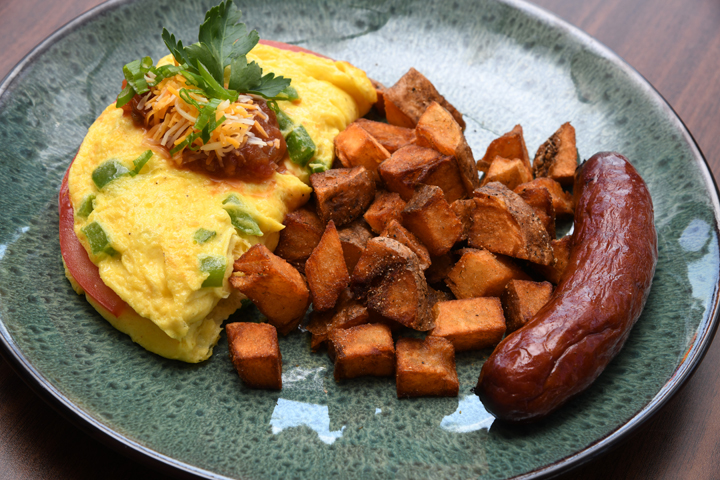
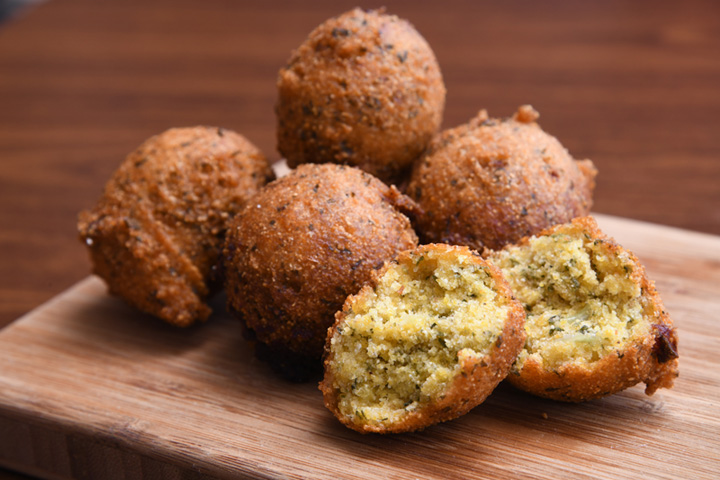
After a brief stint in New York City to learn the art of bagel making, he learned that without NYC water it’s impossible to duplicate the NYC bagel. So he returned to Louisville and earned a culinary degree from Jefferson Community & Technical College’s highly regarded Culinary Arts program(where Adam also taught for a while).
As he learned the elements of formal cookery there, Adam began to envision his own entrepreneurial venture. On a visit to New Orleans’ French Quarter, he had been so curious about the famous Café du Monde that he was invited on a tour of the kitchen, where he saw the famous beignets being made. Later, when he started talking to his dad about opening his own place, David told him to brainstorm – to just write down a bunch of ideas that came to mind — and atop the list was the word “beignet.” Adam’s father rented him the Fish House space on Sundays (when the restaurant was closed)and mentored him on the elements of the business — analyzing food and labor costs, price points, and other restaurant business details, and Adam started applying them almost immediately to his startup, a space sharing weekend side-project called Café Beignet. In addition to the chicory coffee and beignets that are staples of the Café du Monde, Adam decided to use his baking experience and academic background to build a small but very focused menu that would allow him to apply his culinary training to his new weekend side gig. As his culinary skills grew, Adam started adding specials and staples, including meticulously crafted omelets, classic favorites like Egg in the Hole, and an array of weekly blackboard specials that lure people back week after week.
“On that first Sunday,” said Adam, “we grossed two hundred dollars and made fifty in profit.” “We were kneading doughs and making beignets fresh, and serving coffee, and everybody who came in loved it. But my Dad didn’t seem very happy about it, that I’d made money.”
Finally, Adam asked his dad about his disgruntlement, “Dad, what’s going on?”
David said, “Son, this was supposed to be the biggest learning experience of your life. You were supposed to fall flat on your face.” Even after years of success, says Adam, his father still occasionally muses, “Who would have ever thought you could sell beignets in a fish place?”
And yet, as any denizen of Fish House will tell you, those piping hot powdered sugar and cinnamon treats make for perfect endings not only on weekends but any day of the week. About a dozen years ago, Adam became a partner on the Fish House side of the business, and now operates both sides of the business with his father as an active and engaged partner.







